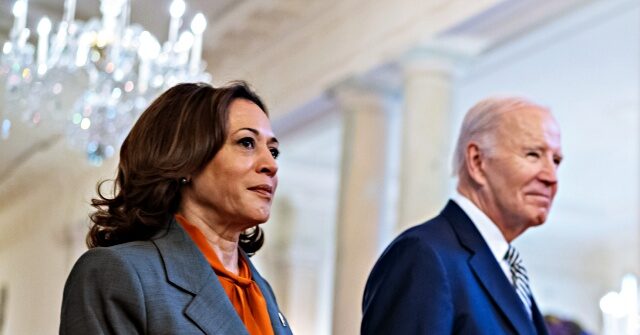On CNN’s “The Source,” Rep. Debbie Dingell (D-MI) addressed Vice President Kamala Harris’s recent comment that her home care policy distinguishes her from President Joe Biden in the context of the upcoming 2024 election. During this discussion, Harris asserted that her robust home health care plan sets her apart from Biden, prompting host Kaitlan Collins to inquire whether such a distinction resonates with undecided voters in Michigan. Dingell’s response highlighted Biden’s longstanding commitment to home care initiatives, asserting that he has been actively pushing for home care policy for the past four years. This exchange underscores the importance of policy distinctions in influencing voter sentiment as the Democratic primary unfolds.
Dingell emphasized her collaborative efforts with Biden to advance home care legislation, pointing out that this issue is close to both their hearts. She stressed the significance of home care accessibility, referencing a staggering number of individuals currently on waiting lists for home health services. According to Dingell, care for seniors should not only be prioritized but also framed in economic terms, as it can lead to cost savings for both families and the healthcare system. Her remarks suggest that home care matters deeply to voters, particularly the elderly and their families, making it a relevant and poignant topic in the current election cycle.
While Dingell acknowledged that differentiation on home care may appeal to some voters, she insinuated that Biden’s track record on this issue should not be overlooked. She also underscored the collaborative approach that Biden has taken with lawmakers like herself and Senator Bob Casey (D-PA) to address the needs of seniors and individuals requiring home care services. This illustrates how both the President and Dingell have been working diligently to create an inclusive policy framework aimed at reducing waiting times and improving access to critical healthcare resources.
The conversation further highlights the competing narratives of the Harris and Biden campaigns as they articulate their positions on healthcare policy. Harris’s emphasis on her unique approach to home health care serves to identify a perceived gap between her plans and the current administration’s efforts. However, Dingell’s comments raise questions about the effectiveness of such distinctions in swaying undecided voters, suggesting that more comprehensive discussions on the issue might be necessary to meaningfully inform constituents’ choices at the polls.
As the dialogue surrounding home care policies intensifies, it is crucial for both the Biden and Harris campaigns to effectively communicate their respective visions and strategies to the electorate. Voters are increasingly concerned about healthcare affordability and accessibility, particularly for seniors who represent a significant demographic. Dingell’s insights reflect the importance of addressing these concerns through policy initiatives—an avenue likely to weigh heavily in the minds of voters as they engage with candidates in the lead-up to the election.
In conclusion, the exchange between Collins, Dingell, and the implications of Harris’s remarks highlight the critical nature of healthcare policy, especially concerning home care, in the 2024 Democratic primary. By underscoring the collaborative efforts between Biden, Dingell, and other Democrats to expand home care access, the discussion encapsulates a broader narrative regarding the challenges and opportunities within the healthcare system. As candidates work to resonate with voters in a competitive primary, the ongoing dialogue about home care will likely remain a pivotal topic shaping public perception and electoral outcomes.

